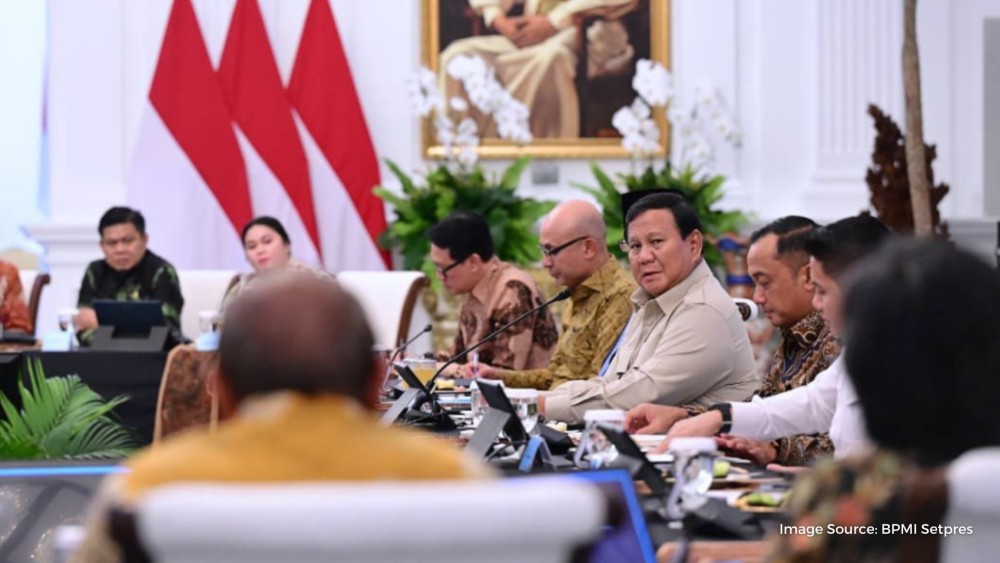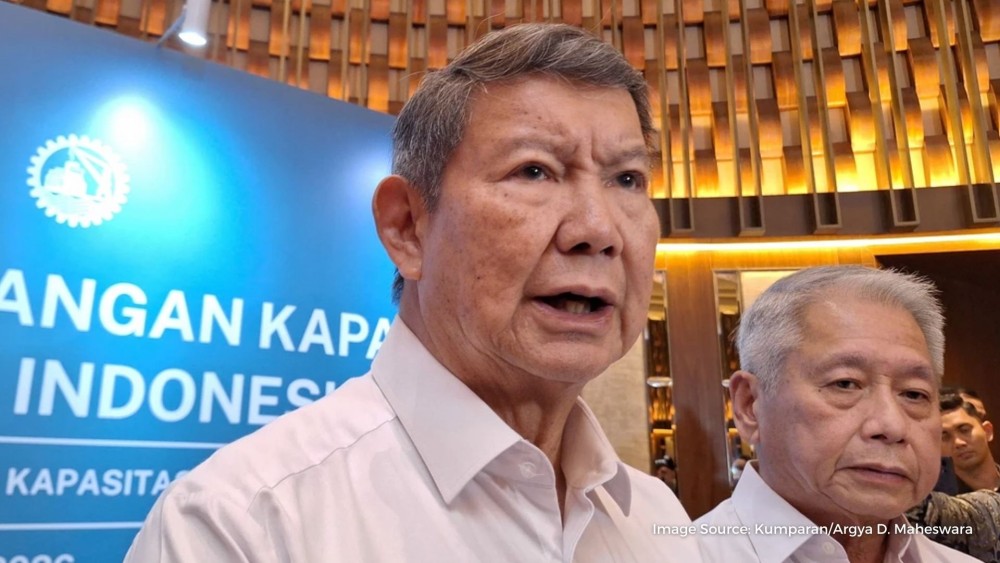This Week's Headlines (Oct 28 - 3 Nov 2023)
03 Nov 2023

Indonesia sets emission target for G7 funding, lays out investment map
Indonesia aims to cut carbon emissions to 250 million metric tons for its on-grid power sector in 2030 and increase its share of renewable energy generation to 44% under a Just Energy Transition Partnership (JETP), its plan showed on Wednesday.
The partnership, a financing scheme of equity investments, grants and concessionary loans from Group of Seven (G7) members, multilateral banks and private lenders, is aimed at helping developing countries shift to cleaner energy in the power sector.
Indonesia's comprehensive investment and policy plan (CIPP) for the partnership was made public to lay out a path for the Southeast Asian country to secure US$20 billion in funding under the program.
Indonesia and a group of investors, led by United States and Japan, had initially agreed to peak emissions from the power sector of 290 million tons by 2030, and to increase the renewable share of power generation to 34%, but the scope of the off-grid power system was not fully mapped out at the time.
The CIPP released on Wednesday does not include so-called captive power plants, off-grid systems developed and managed by industries for their use.
Captive coal power stations with 13.74 gigawatt (GW) of capacity are operating in the Southeast Asian archipelago and 20.48 GW are being planned. The recent surge is due to the expansion of the metal processing sector, according to a July report that the Asian Development Bank commissioned.
The coal-fired power plants operated by industries are being excluded from the plan because authorities need more time to work out how to protect the nickel smelting sector, an official involved with the programme said earlier.
"While the off-grid captive power systems are outside of the scope of the current CIPP, Indonesia and IPG share a strong commitment to identifying and implementing viable solutions going forward," Indonesia's JETP Secretariat said in the plan.
Without this plan, Indonesia's greenhouse gas emissions are expected to reach more than 350 million tons in 2030.
Funding
While the plan is aimed at securing $20 billion in G7 funding, with $10 billion of public funding pledged and $10 billion due from private lenders, the Secretariat said in its plan it had identified more than 400 priority projects that would require at least $67.4 billion of investment.
The plan showed that $153.8 million of the $20 billion pledged had been identified as grants. The rest of the public financing could include concessional loans at below-market rates, the Secretariat said.
Indonesia's JETP office would match projects with appropriate financing terms and structures, based on priorities, it said.
Private financing may come in the form of commercial loans that carry market rates, equity investment or other structures, according to the plan.
Coal power early retirement will be carried out for 1.7 GW of capacity by 2040, the plan showed.
Three other countries have negotiated a JETP.
G7 members have offered Vietnam 2% of its total $15.5 billion JETP financial package in grants, while the biggest chunk of its loans will carry market-determined interest rates, documents reviewed by Reuters showed.
South Africa secured the inaugural JETP deal with a $8.5 billion financing pledge but the plan has drawn criticism from trade unions worried about job losses in its coal belt.
In June, Senegal announced a JETP worth 2.5 billion euros under which it aims to increase its share of renewable energy in its installed capacity to 40% by 2030.
Experts have said ensuring the success of Indonesia's JETP is important not just because it is the biggest but also because it is a test of G7 commitment to work with developing nations.
Indonesia has also turned to China for help to develop renewable energy.
Source: Reuters
Indonesia taps China for study into high-speed rail extension to Surabaya
The government will work with state-owned China Railway group to conduct a joint study on extending the Jakarta-Bandung high-speed rail (HSR) project to Surabaya, East Java, the State-Owned Enterprises (SOEs) Ministry has said.
China Railway is a major shareholder from the Chinese side in PT KCIC, a Sino-Indonesia consortium responsible for building the project and which holds a 40 percent share, with the rest owned by a consortium of Indonesian state-owned companies led by PT KAI.
During the construction, the company also acted as one of three major contractors for the Jakarta-Bandung HSR and has taken responsibility for operation and maintenance in the early years.
"When we visited China not too long ago, we signed [an agreement] to start the joint study with China Railway," Deputy SOEs Minister Kartika Wirjoatmodjo said on Tuesday, as quoted by Kompas.
However, up until now, there has been no concrete deal with the Chinese state-owned infrastructure firm about the investment needed for the extension, he said. This includes a new loan and interest rate agreed to finance the project.
Extending the HSR service, known as Whoosh, to Surabaya is urgently needed, according to experts. They argue that the relatively short distance of 142 kilometers poses a challenge for the project's profitability, as most HSR run over a 400-km distance.
Previously, Coordinating Maritime Affairs and Investment Minister Luhut Pandjaitan said on his Instagram account that an agreement with China to extend the HSR track to Surabaya would soon be reached.
He added that the interest rate to finance the extension project could be lower than that offered by other countries, without disclosing the specific figures.
"We have proved the technology. The main [challenge to the project] is the unclear land-acquisition process. Now, we already have experience, [so] we won't have problems anymore," Luhut, who is still on sick leave in Singapore, stated on Saturday.
The HSR began commercial operation on Oct. 17, charging a promotional fare of Rp 150,000 (US$9.44) for a one-way ticket until the end of November.
Its commercial launch coincided with President Joko "Jokowi" Widodo meeting with his Chinese counterpart Xi Jinping, amid the Belt and Road Forum in Beijing.
Erick Thohir, the interim coordinating maritime affairs and investment minister, said that extending the HSR to Surabaya was one topic discussed during the meeting between the two leaders.
Prior to its launch, the Jakarta Bandung HSR faced multiple delays from its initial completion target of 2019. Setbacks resulted in a cost overrun of at least US$1.2 billion, on top of its initial budget of $6.05 billion.
The government has allowed the state budget to support the project through a state capital injection (PMN) and loan guarantee to smooth financing of the existing project, despite Jokowi’s promise in 2015 not to use taxpayer’s money.
Aside from Indonesia, other countries in Southeast Asia also have plans to build railway projects, although not all will materialize soon.
In 2021, Malaysia scrapped a plan to build a 350-km HSR that would connect Kuala Lumpur and Singapore, in a bid to cut the country's debt.
Meanwhile, the Philippines said this October that it would no longer pursue Chinese loans to fund three railway projects and plans to seek other sources of funding.
Source: The Jakarta Post
Jokowi Breaks Ground for Airport, Hospitals in Nusantara
President Joko "Jokowi" Widodo on Wednesday inaugurated several projects in Indonesia's future state capital Nusantara, including a Rp 4.3 trillion ($ 269.6 million) international airport. The president is set to inaugurate a total of 10 projects worth Rp 12.5 trillion during his visit to East Kalimantan from November 1 to 3, 2023.
"Today, we are conducting the groundbreaking ceremony for the construction of the Nusantara State Capital Airport with a target for full operation by December 2024," the president said.
Covering a vast area of 347 hectares and featuring a 3,000 x 45-meter runway, the airport will be capable of handling wide-body aircraft. Moreover, the airport will include a spacious 7,530-square-meter passenger terminal.
"This airport will enhance accessibility to the Nusantara area. Connectivity will improve, making it easily reachable from various locations," Jokowi said.
Nusantara is situated in North Penajam Paser Regency, approximately 50 kilometers south of Balikpapan, the biggest city in East Kalimantan province. The future capital city is slated for inauguration on August 17, 2024, coinciding with Indonesia's Independence Day.
The construction of the airport is one of 10 projects inaugurated by the president in Nusantara from November 1 to 3, 2023.
Jokowi also inaugurated two hospital projects, Hermina Nusantara Hospital and Mayapada International Hospital, Nusantara Intercultural School, State Elementary School 020 Sepaku, and the Pakuwon Superblock. Additionally, Jokowi will inaugurate the Orangutan Sanctuary Island, the Bank Indonesia office, the Social Security Agency (BPJS) building, and a hydropower plant.
According to the State Capital Nusantara Authority (OIKN), there are already projects worth Rp 23 trillion that have started construction in the area. Several projects are scheduled for groundbreaking until December 2023, with a total investment value reaching Rp 45 trillion.
Jokowi underscores the significance of prioritizing domestic investors.
"I convey to the IKN authority to prioritize domestic investors first. But if it reaches a deadlock and there are no more options, we will consider foreign investors," he said.
The construction of the Hermina Nusantara Hospital carries an investment value of Rp 650 billion, while Mayapada Hospital is valued at Rp 500 billion. In his address, the President called on these hospitals to not only serve VVIP patients but also BPJS patients.
"We will continue to build various supporting facilities so that more people are interested in living in Nusantara and making it a lively, modern, advanced, and environmentally friendly capital city," said Jokowi.
Separately, the Ministry of Public Works and Public Housing (PUPR) said that the construction of the toll road leading to Nusnatara has reached 55 percent. The toll road with three lanes on each side is targeted to be completed by June 2024. Once completed, the journey from Balikpapan to Nusantara will be significantly shorter, taking only about 45-50 minutes, compared to the current 2-hour journey.
Source: Jakarta Globe
















